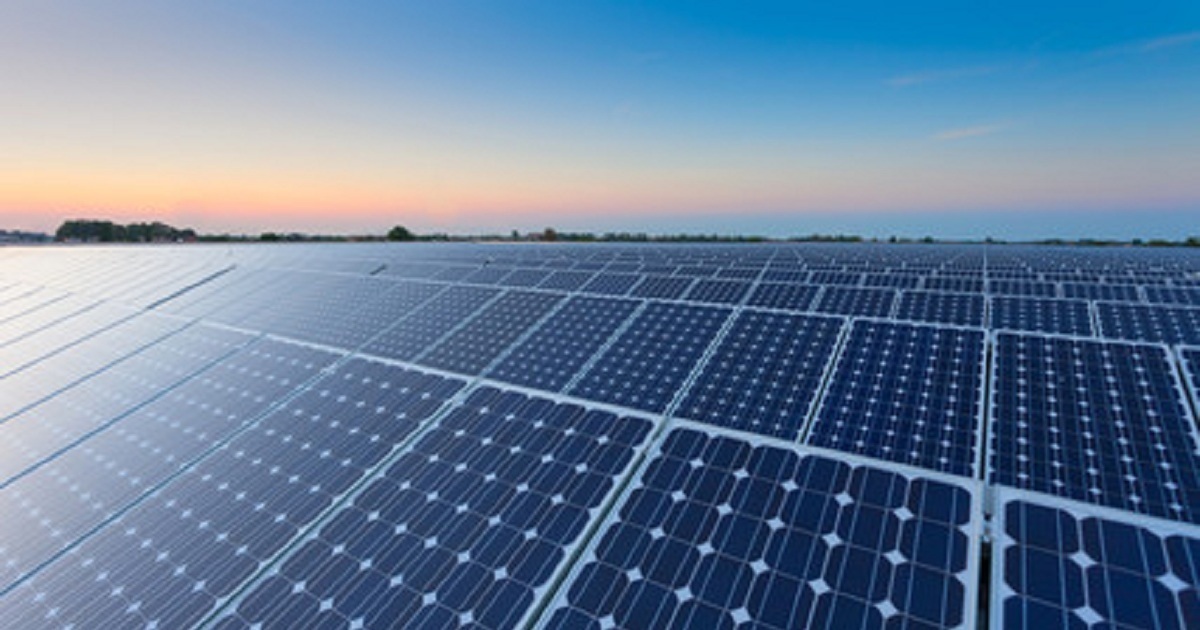In Brazil, Atlas Renewable Energy and Unipar Sign a Power Purchase Agreement (PPA) for Solar Energy
Atlas Renewable Energy | July 20, 2021

Atlas Renewable Energy, a global pioneer in renewable energy, and Unipar, a South American leader in chlorine, chlorides, and PVC, announced today the signing of a large-scale solar energy power purchase agreement (PPA) in Brazil. Atlas Renewable Energy's Lar do Sol – Casablanca II photovoltaic facility in Pirapora, Minas Gerais, will produce the clean solar energy supply.
The Lar do Sol – Casablanca II Solar Plant, which would cover around 700 hectares, will have a capacity of 239MWp and 460,000 solar panels installed. The plant will use bi-facial module technology, which uses the reflection of the sun's rays from their front and back faces to increase the efficiency of photoelectric conversion and boost overall plant output. The project is projected to produce enough energy to power two of Unipar's facilities in Brazil.
According to the average usage of a Brazilian family, Lar do Sol Casablanca II's annual energy generation will be enough to power around 261,662 dwellings. Furthermore, the plant will save roughly 40,500 metric tonnes of CO2 emissions each year. This computation is based on the GHG (Greenhouse Gases) Protocol, a methodology created by the World Resources Institute that adheres to the IPCC's methods (Intergovernmental Panel on Climate Change). This quantity of CO2 emissions avoided is equivalent to removing 16,200 automobiles from Sao Paulo's streets.
Atlas Renewable Energy will develop, build, and operate the Lar do Sol – Casablanca II Solar Plant. Atlas Renewable Energy's track record and expertise in Latin America have positioned it as one of the fastest-growing renewable energy companies in the Americas and an essential player in the region's energy sector. Atlas' rapidly expanding footprint in the Brazilian market now includes six large-scale solar facilities totaling more than 1GW. The signing of this long-term agreement with Unipar, one of Brazil's leading chemical industries, demonstrates Atlas' capacity to collaborate with private companies to assist them reach their carbon emission reduction goals as they transition to a cleaner energy source.
"Adoption of renewables is becoming a staple of good corporate responsibility, and we at Atlas offer a unique opportunity for large energy consumers to clean their energy matrix while also being sponsors of the social and environmental programmes we develop to uplift the communities in which we operate," replied Luis Pita, General Manager of Atlas Renewable Energy for Brazil. "This deal demonstrates our company's leadership in the renewable energy sector in Brazil, as we continue to implement tailor-made solutions with cutting-edge technologies, raising industry standards and giving our clients a competitive advantage. It's a pleasure to be collaborating with a national chemical leader like Unipar to help them achieve their sustainability goals."
According to Mauricio Russomanno, CEO of Unipar, the agreement demonstrates the company's commitment to the future of the country and the business's survival. "This is another step toward more sustainable solutions, enhancing the company's efforts in the search for energy matrices from renewable sources, ensuring access to the critical input for our operations and producing higher competitivity through self-production. The total quantity of energy generated for Unipar will be sufficient to manufacture chlorine for the water treatment of over 60 million people ", states the president.
As part of Atlas Renewable Energy's commitment to the communities in which it operates, the Lar do Sol - Casablanca II Solar Plant will employ around 1,200 people at its peak. The corporation will also implement a number of environmental and social activities, including the "we are all part of the same energy" female workforce programme. The programme focuses on promoting inclusive practises by training and developing the local female workforce. Atlas intends to have at least 15% female representation in the overall workforce during the plant's construction. This effort will provide local women with access to new career opportunities throughout the project's construction, generating a chance for economic stability while also enhancing their skill sets and potential by incorporating them into more technical jobs.
About Atlas Renewable Energy
Atlas Renewable Energy is a renewable energy generation firm that plans, builds, and runs long-term renewable energy projects across the Americas. The present portfolio of the company is 2.35GW of contracted projects in various phases of development, construction, or operation, with plans to expand by an additional 5GW in the next years.
Atlas Renewable Energy, which was founded in early 2017, is led by an experienced team with the longest track record in the Latin American solar energy market. The organisation is known for its excellent standards in large-scale project conception, construction, and operation.
Atlas Renewable Energy is a portfolio company of Actis, a significant private equity investor in the energy sector. Atlas Renewable Energy's expansion is focused on the world's largest emerging markets and economies, where it will leverage its proven development, commercialization, and structuring expertise to expedite the transition to clean energy. Every day, the organisation seeks to deliver a cleaner future by putting active engagement with the community and stakeholders at the centre of its project approach.
About Unipar
Unipar is a South American leader in chlorine, chlorides, and PVC, raw materials that constitute the foundation of all businesses, and is listed on the Brazilian Stock Exchange (B3 S.A. - Brazil, Bolsa, Balco).
Unipar, which employs around 1,400 people in its offices and industrial operations in Cubato (SP), Santo André (SP), and Baha Blanca (Argentina), is committed to quality, safety, environmental stewardship, community inclusion, and the recognition of collaborators.
Unipar has been connected and integrated with local communities throughout its 50-year history through its Community Advisory Council, which brings together neighbours, social entities, and company representatives. Furthermore, it is a pioneer in the adoption of the Open Factory Program, which keeps its plants open to visitors 24 hours a day, seven days a week, 365 days a year.